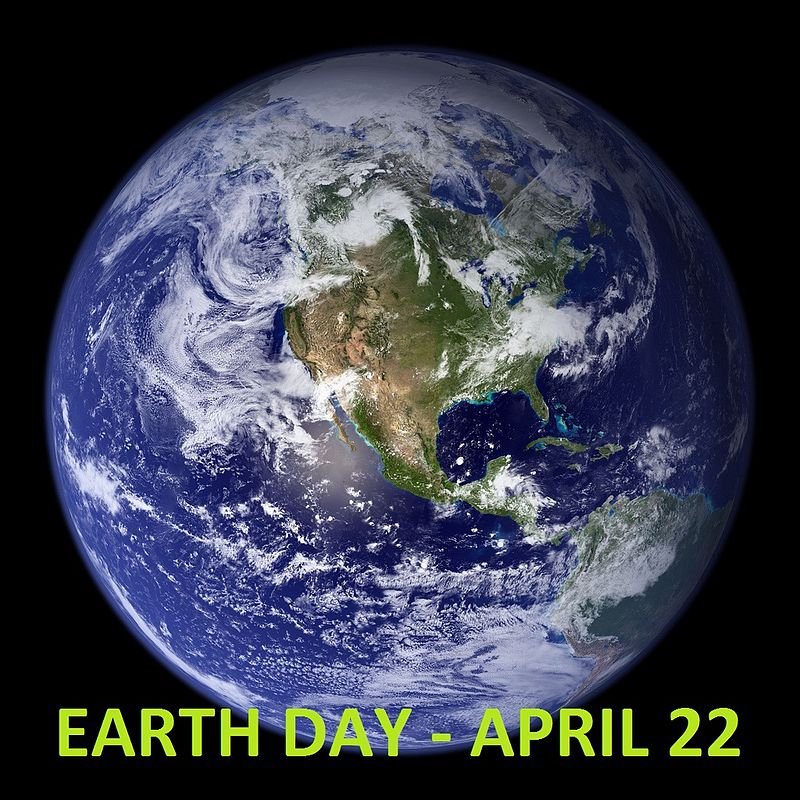End Plastic Pollution with Earth Day, 2018
You have seen a poster or two about Earth Day in the past or a commercial on television. Perhaps your first grade teacher taught you the “Three R’s”: reduce, reuse, recycle. Maybe you have even taken some eco-friendly steps yourself in anticipation of this important day.
Earth Day is all about education, the betterment of our natural world, embracing sustainable development, and encouraging the science behind Earth’s existence. It is also about raising the political voices that each and every one of us has to fight for a global, green economy. People worldwide participate in this important day every year on April 22.
The idea of Earth Day first came to Gaylord Nelson, then a U.S. Senator from Wisconsin, when he witnessed the tremendous oil spill in Santa Barbara, Calif, and the way youth, students, and citizens tried to solve their economic problems in 1970. He originally founded Earth Day to increase environmental awareness and to promote the proper caretaking of our world.
Nelson was the government figure that the grassroots activists, counterculture, and college students needed to draw national attention to the environmental cause they had been promoting. Earth Day was part of a larger movement in the U.S. created by Rachel Carson’s bestseller Silent Spring (1962), which raised concerns about the overuse of pesticides and about the growing pollution of our air.
The movement eventually led to the creation of the United States Environmental Protection Agency (EPA), as well as the Clean Water Act of 1972 and the Endangered Species of 1978. Environmental research and education has promoted our transition toward a greener nation.
Today, over 193 countries celebrate this now international holiday each year, including China, India, the U.S., many European countries, and most other countries that signed the Paris agreement on Earth Day, April 22, 2016.
Today, the fight for a clean environment faces great challenges, as a disinterested public, a divided environmental community, and politicians inhibit environmentalists’ advance. The Earth Day Network (EDN) is fighting for influence, hoping to capture the general public’s concern once more.
Each year, the EDN chooses a new universal theme, or program that they focus on in hopes of cleaning up our environment.
“Trees for the Earth” was 2016’s project, which planted over 1 billion trees, hoping to plant another 6.8 billion trees by 2020.
For 2017, Earth Day brought forth “Environmental and Climate Literacy,” with a goal to solve environmental threats, such as air pollution, underground and surface water contamination, radioactive waste threats, and global warming concerns.
This year’s topic is “End Plastic Pollution,” emphasizing the damage caused by these polymers. Large cities use approximately 100 million plastic bottles each year, 35 percent of which are recycled. Millions of these leftover bottles are thrown in dumps – or worse, the ocean – and will take 1,000 years to decompose, releasing dangerous and harmful chemicals into our atmosphere.
The production of plastic itself is costly, and the consequences really aren’t worth the money. These consequences include the poisoning and injuring of marine life, the disruption of human hormones, the clogging of waste streams and landfills, the littering of beaches and have caused the EDN to launch a multi-year program to reduce plastic pollution. The growth of plastics threatens Earth’s survival.
Although the problems we have created on Earth seem irreversible at times, even a small community can do so much to change this growing problem. A few simple steps can become much larger and more beneficial towards the cleansing of the earth.
For example, you can go around your neighborhood, park, or town and clean up any trash or litter you find. You can start recycling your paper, glass, and plastic if you haven’t already done so. One of the best ways to help contribute to this year’s theme (“End Plastic Pollution”) is by ditching plastic bottles altogether and using refillable water bottles instead. (This is also cheaper than buying a plastic bottle each time you drink.)
Every little action towards saving our planet counts, whether it be turning off the lights and unplugging electrical appliances, or carpooling, biking, or walking to your destination. Reducing carbon footprints (the amount of carbon emitted by a person) will help our atmosphere significantly. You can try using eco-friendly products, recycling plastic, and putting biodegradable substances in a compost.
Growing gardens can eliminate greenhouse gases that eat away at the ozone layer and produce cheap, fresh, and healthy food as well. Whenever possible, bring your own bags when you go shopping, and buy coffee mugs or water bottles that can be reused.
Engage in community service focused on cleaning your township, or donate to those focused on areas outside your local community. Any action you take will make a huge impact, conserving our world for generations to come.

Kaelyn Klatte, a junior at Harriton, has been writing for The Harriton Banner since freshman year. An avid science fan, active Cross Country/track athlete,...


